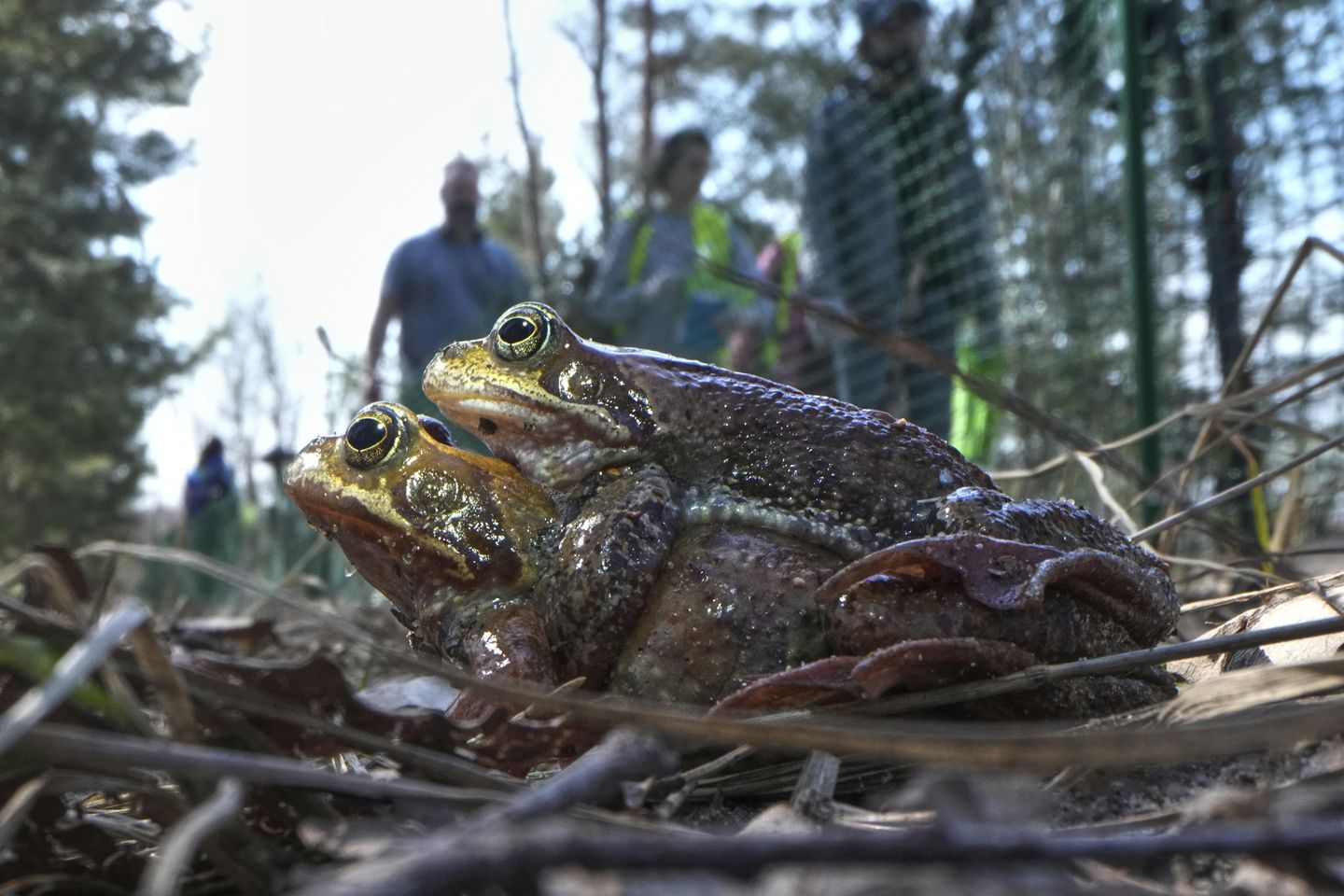
Hundreds of volunteers gather each spring along a roadway near St. Petersburg, Russia, to help thousands of toads and frogs safely cross to their spawning grounds. Clad in yellow vests, these volunteers serve as crossing guards for amphibians in the Sestroretsk Bog nature reserve.
The initiative began in 2016 and has grown significantly, with more than 700 volunteers participating annually. Their mission is simple but vital: Collect the toads in buckets, record their numbers and safely deposit them on the other side of the road.
“So cute!” exclaimed one volunteer as a toad clung to her pink glove during a recent patrol.
According to Konstantin Milta, senior herpetology researcher with the St. Petersburg Zoological Institute, without intervention, up to 1,000 toads would perish each year on this stretch alone. “On large highways, the death rate is monstrous. Sometimes the surface of the road can be covered with a layer of dead animals,” Milta explained.
The migration pattern requires the amphibians to cross the road twice annually. “Toads migrate from the forest to the bay in the spring, reproduce in the reed beds in the coastal strip, lay eggs, and then, somewhere in mid-May, they leave the water and migrate back to the forest,” Milta said.
To alert drivers, a large reddish-orange sign featuring a toad silhouette warns: “Attention! Slow down! Toads are crossing the road.” While traffic is relatively light, even minimal vehicle movement poses a significant threat to the migrating amphibians.
Viktoria Samuta, who heads the environmental education section of the Directorate of Protected Areas of St. Petersburg, reported that volunteers helped relocate thousands of specimens last year alone. “It is very good that in recent years there have been more and more people ready to help living beings,” she noted. “Our mission is, precisely, to make people love our nature more and more, and be willing to help it.”
For volunteers like Diana Kulinichenko, the experience offers a welcome respite from daily routines. “I’ve been whining all semester that I want to go to the forest,” she shared. “And here’s the forest, the toads, you help the toads, you’re in the forest, you breathe clean air.”
Read more: Russian bucket brigade helping toads and frogs cross the road to get to a spawning site
This article is written with the assistance of generative artificial intelligence based solely on Washington Times original reporting and wire services. For more information, please read our AI policy or contact Ann Wog, Managing Editor for Digital, at awog@washingtontimes.com
The Washington Times AI Ethics Newsroom Committee can be reached at aispotlight@washingtontimes.com.












